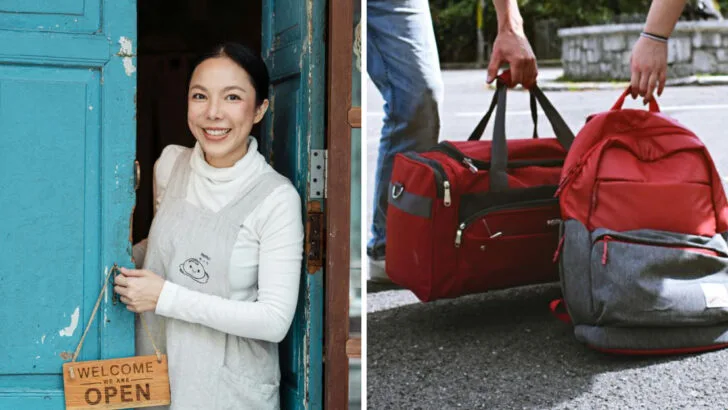Airbnb hosts have a keen eye when it comes to the check-in process. Their experience often guides them in observing key aspects that can influence the guest’s stay.
Here are ten things hosts typically notice when guests check in.
Arrival Time and Punctuality
Have you ever been late to an event and felt the awkwardness in the air? Punctuality isn’t just about time; it’s a reflection of respect and communication.
When guests arrive on time, hosts immediately feel a sense of trust, as it shows the guests value their time and commitment. Conversely, arriving late without notice might ring the bells of unreliability or potential issues during the stay.
This initial impression can set the tone for the entire experience. Arriving early, however, can show enthusiasm. These nuances are crucial for hosts to gauge what to expect.
First Impressions and Attitude
Imagine greeting someone with a warm smile only to receive a cold shoulder. The first impression isn’t just about pleasantries; it’s a silent conversation that sets the stage for the entire stay.
Hosts notice whether guests are friendly, respectful, or seem entitled. Body language, tone of voice, and even the smallest gestures contribute to the overall vibe.
A good first impression can foster a positive relationship, while a negative one might create tension. This initial interaction is often a reliable predictor of how guests will behave during their visit.
Number of People vs. Reservation
Hosts often play a quick game of ‘spot the mismatch’ when guests arrive. It’s not about being nosy, but ensuring the reservation matches reality.
When extra, unregistered guests tag along, it raises eyebrows and concerns about potential rule-breaking. Hosts have to consider safety, logistics, and fairness to all parties. This check is not merely about numbers but ensures that trust is maintained.
If guests sneak in extras, it may hint at a disregard for rules. On the other hand, the correct number reassures hosts of the guests’ honesty.
Luggage and Gear
In the world of hosting, luggage tells a story. Are the guests planning a short stay or setting up camp for weeks? An abundance of suitcases for a two-night visit might raise eyebrows.
Hosts often glance at luggage as subtle clues to how guests plan to use the space. Large amounts might suggest unauthorized gatherings or other activities. While sometimes just an indicator of packing preferences, unusual items can hint at potential breaches of house rules.
Paying attention to these details helps hosts anticipate and manage their space effectively.
Cleanliness and Grooming
A polished appearance often speaks volumes. While hosts aren’t judgmental, the cleanliness of guests upon arrival can hint at their habits. Disheveled or messy arrivals sometimes foreshadow how they’ll treat the property.
Clean, well-groomed guests might suggest respect for space and hygiene standards. The state of personal grooming can provide insights into how they might use the amenities.
Although external appearances shouldn’t determine entire assumptions, they can serve as initial indicators. This assessment helps in predicting the care level guests might have for the property.
Communication Style
The way guests communicate can be as telling as their words. Some guests are naturally chatty, eager to learn about the area and engage with the host. Others may be reserved, only speaking when necessary.
Then there are those who avoid eye contact, perhaps indicating discomfort or a wish to be left alone. These initial communication styles help hosts assess how easy or challenging interactions might be during the stay.
It’s not about trying to read minds but rather understanding preferences. This insight aids in tailoring the hosting approach to match guest needs.
Respect for the Property Upon Entry
Respect can be immediately visible. Imagine a guest who instinctively removes shoes, asks before touching items, or shows curiosity about house rules.
These small acts of consideration can reassure hosts that their property will be treated with care. The initial respect demonstrated can pave the way for a harmonious visit, setting expectations for mutual respect.
For hosts, these gestures are comforting, reducing anxiety about potential damages. On the flip side, a lack of regard for the property can signal possible issues. This trait is a reliable predictor of future behavior.
Questions Asked During Check-In
Questions can be a window into a guest’s engagement level. Smart inquiries about Wi-Fi, security, and local recommendations often indicate that guests are invested in their stay and eager to make the most of it.
A lack of questions might suggest disinterest or a dismissive attitude, which can raise host concerns. Engaged guests are more likely to respect the property and the host’s efforts.
This initial curiosity can lead to a more interactive and enjoyable experience for both parties. It’s about gauging the level of interest and involvement.
Smells (Perfume, Smoke, etc.)
The nose knows more than we realize. Strong odors, whether from perfume, smoke, or other substances, are often noticeable as soon as guests arrive.
Hosts are particularly sensitive to these smells, especially if they hint at a potential breach of house rules, like smoking indoors. While some scents are pleasant, others can signal trouble. This sensory observation helps hosts identify possible issues early on.
It’s not just about maintaining the property but ensuring a comfortable environment for all guests. A keen sense of smell can be a valuable tool.
Immediate Red Flags
Sometimes, it’s the immediate red flags that catch a host’s eye. Complaints about agreed-upon rules, suspicious behavior, or guests scouting for camera locations can be alarming.
These signs may indicate potential problems that could arise during the stay. Hosts stay alert for such behaviors, as they often foreshadow difficult interactions. Addressing these issues early can prevent misunderstandings and ensure a smoother experience.
The ability to spot these red flags quickly allows hosts to manage situations proactively, maintaining a safe and comfortable environment.

